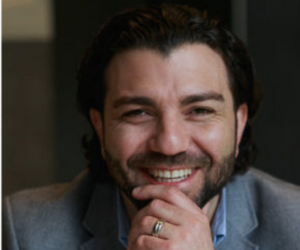Bariatric Surgery
BARIATRIC SURGERY CAN BE EXTREMELY HELPFUL AS A LAST RESORT
Bariatric surgery is generally only available for severely obese individuals who have not succeeded in controlling their weight using diet and exercise. Almost all of our patients at Penn have tried traditional diet programs and lost significant amounts of weight, but they aren’t able to keep the weight off. For them, being overweight is more than carrying extra pounds. It can mean significant psychological and medical issues; such as depression, heart disease, diabetes, severe sleep apnea, a great deal of physical pain, and a shorter life.
For these individuals, bariatric surgery is a tool that by itself isn’t going to solve their problems. However, by following the post-operative recommendations, which include eating a diet high in protein and low in carbohydrates, with five or six small meals throughout the day, and with exercise, bariatric surgery can help patients to lose significant amounts of weight and to keep it off over the long-term. This means both a longer life and a higher quality of life.
GUIDELINES FOR BARIATRIC SURGERY
Per the recommendations of the American Society for Metabolic and Bariatric Surgery, patients are eligible for bariatric surgery if they have a BMI of 35 along with co-morbidities such as high blood pressure or diabetes, or if their BMI is 40 or more even without co-morbidities. However, more and more surgeons are allowing individuals with lower BMIs to get the surgery.
BARIATRIC SURGERY ISN’T ALWAYS A SUCCESS
Although it is not widely talked about, bariatric surgery failure rates are higher than you would think. A recent study published in JAMA Surgery (2012) showed that nearly 20% of Roux-en-y gastric bypass patients failed to lose at least 50% of their excess BMI by both the 1- and 2-year follow-ups. The person who doesn’t follow the lifestyle recommendations and instead drinks milkshakes all day long is going to regain the weight. It’s a misconception that “I’ll get the surgery and not have to do anything.”
There’s also a 0.5% risk of death either during the surgery or within 30 days of the surgery. Many people don’t realize that this is a serious surgery that involves a massive change to their lifestyle.
WHAT WORKS FOR WEIGHT CONTROL ISN’T EASY OR SEXY
Our recommendations for a healthy lifestyle haven’t changed much in 50 years: have three balanced meals a day; eat a range of low- calorie foods while limiting high-fat and high-sugar foods; and enjoy your food without making it your primary means of enjoyment. In other words: moderation. This is not a sexy answer, and it’s not an easy answer. But it really is the best answer we have right now.
DON’T BLAME YOUR PATIENT
We know that a huge amount of stigma is associated with being overweight. This comes not only from the public, but also from health care providers. Your patient doesn’t want to be overweight. Being judgmental only makes them feel guilty, depressed. Not to mention it will make them less likely to want to come back and may lead to binging. Instead, recognize that in the current environment, it’s truly challenging to maintain a healthy body weight.
Continued….
CHANGE NEEDS TO COME BOTH THROUGH EDUCATION AND AT THE POLICY LEVEL
In this country, making the choice to eat healthy is very hard, given that high-calorie, highly processed food is available everywhere all the time. This can be addressed at the policy level, for example by changing the food that’s available in schools or taxing soft drinks.
But education is also tremendously important. I have clients who come in thinking that drinking a typical soft drink is like drinking water. They’ve never been taught that there are often as many as 140 calories in just one 12-ounce can. They also need to know that eating a small orange may involve something in the range of 45 calories, versus eating a candy bar, which could easily be 250 calories. Choosing an orange over a candy bar doesn’t make a difference in weight for one day, but we quickly develop habits, and 20 years of eating a candy bar instead of an orange makes an enormous difference.
Search Articles
Latest Articles
The Hidden War: How Hybrid Warfare Targets Democracy
https://foreignpress.org/journalism-resources/the-hidden-war-how-hybrid-warfare-targets-democracy Publication –foreignpress.org
Hybrid Warfare: The West Needs to Stop Playing Defense
https://foreignpress.org/journalism-resources/hybrid-warfare-the-west-needs-to-stop-playing-defense Publication –foreignpress.org
The Invisible Wounds of California’s Wildfires
https://foreignpress.org/journalism-resources/the-invisible-wounds-of-californias-wildfires Publication –foreignpress.org
Investing in Ukraine: A High-Potential Market with Some (Literal) Landmines
https://www.wealthmanagement.com/high-net-worth/investing-ukraine-high-potential-market-some-literal-landmines Publication –wealthmanagement.com
Subscribe to Updates
About Author

Mitzi Perdue is the widow of the poultry magnate, Frank Perdue. She’s the author of How To Make Your Family Business Last and 52 Tips to Combat Human Trafficking. Contact her at www.MitziPerdue.com
All Articles
Why You Need a Family Legacy Mindset
Why You Need a Family Legacy MindsetWhen Vincent Valeri joined the wealth management industry in 2011, he realized there was an extraordinary gap in what most of these organizations offered and what almost all families need. The organizations, he discovered, might be...
Putting the “Family” in Family Business: It’s Worth It
Putting the "Family" in Family Business: It's Worth ItHere’s a question for you: to qualify as a family business, do at least some members of the business need to be related by blood or marriage? Tobi Silver, President of Sterling Resources, LTD has a simple,...
How to Make Your Family Live up to Its Promise
How to Make Your Family Live up to Its PromiseLisa Niemeier, family office consultant and founder of graymatter Strategies LLC, feels that family wealth is a gift. Too often and with too many families, this wonderful gift isn’t allowed to live up to its promise. In...
Silver Arrow’s Secret Sauce: An Investment Thesis Approach
Silver Arrow’s Secret Sauce: An Investment Thesis ApproachLet’s suppose a delightful situation. One way or another (maybe through inheritance, or you got a bonus, or you sold your company) you have some money available to invest. It’s a responsibility. What’s your...
How to Preserve Your Legacy, Using a Stone-Age Technique
How to Preserve Your Legacy, Using a Stone-Age TechniqueAndrew Suhl has added an electronic twist to a Stone-Age practice. Amazingly, the ancient practice we’re talking about is one that even today is one of the most essential tools for keeping your family together...
Seven Tips for Personal Cyber Security
Seven Tips for Personal Cyber SecurityRajesh Mahadwar, CEO of Softkey,Inc., is a great friend of mine, and we bonded over a shared interest in cyber security. He knows my opinion, that if you don’t get this right, you’re letting yourself in for a world of misery and...






